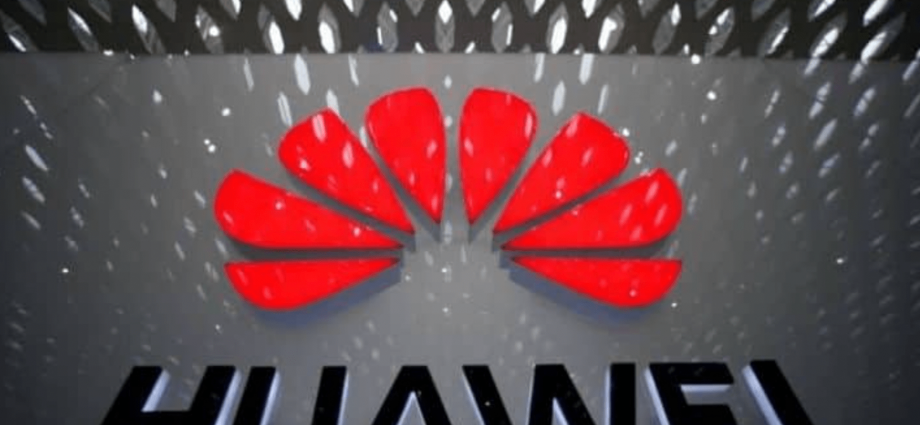
Telecommunication equipment maker Huawei Technologies will have to source 4G chips elsewhere to make its smartphones as it cannot purchase more processors from the United States.
The Biden administration has stopped approving licenses for US companies to ship items to Huawei over national security concerns, Reuters reported. US officials have told Qualcomm Inc and Intel Corp that they should wind down their sales to the Shenzhen-based Huawei, Bloomberg reported.
China’s Foreign Ministry accused the US of violating the market economy principle and international trade rules and hurting a Chinese firm’s legitimate rights and interests.
Some Chinese IT columnists said that although Huawei can either use inventory or buy chips from Taiwan to maintain the production of its Mate50 and P60 smartphones for the moment, eventually it will run short of chips.
But some commentators argued that if Huawei has to end its 4G smartphone business, it won’t suffer much as this segment has a slim margin. They said Huawei is focusing on 5G2B, which uses mature processors such as 28nm-and-up chips.
In May 2019, the US Commerce Department put Huawei and its 70 affiliates on its so-called entity list on national security grounds. Huawei then started using inventory chips plus self-developed Kirin chipsets to maintain its smartphone output.
In September 2020, Taiwan’s TSMC stopped producing Kirin chips, resulting in a countdown for the Shenzhen chip inventory of HiSilicon, Huawei’s wholly owned fabless semiconductor company. At the same time, Intel was granted a license by the US government to sell some of its 4G chips to Huawei. Qualcomm received the same license in November 2020.
When Huawei launched its flagship smartphone P50 in 2021, the company downgraded it to 4G. Its previous flagship version, P40, is a 5G phone.
That sort of retrograde maneuver, however, has only limited effectiveness as shown by media reports that the US government has already stopped issuing licenses for US firms to sell 4G, Wifi 6 and 7, artificial intelligence and high-performance computing chips to Huawei.
“China is gravely concerned about the news, and we are closely following the latest developments,” Mao Ning, a spokesperson of China’s foreign ministry, said Tuesday. “China strongly opposes the United States’ unscrupulous and unjustified suppression of Chinese companies by stretching the concept of national security and abusing state power.”
Richard Yu, chief executive of Huawei Consumer Business Group, said in a Weibo post that “Huawei will not be afraid of challenges and will continue to invest in research and development, improve ourselves and lead the industry to move forward.”
Yu said Huawei’s Mate50 smartphones improved user experience by using the ultra-durable Kunlun Glass, Beidou satellite, XMAGE camera imaging technologies and HarmonyOS. He said it had not been easy to achieve all these innovative technologies.
If the US has already stopped granting licenses to American firms to sell 4G chips to Huawei, the company’s consumer business will face a heavy blow, a Guangdong-based IT columnist wrote on Wednesday.
He said Huawei’s Mate50 had applied many innovative technologies and could maintain its leading status in the markets by using the Qualcomm Snapdragon 765G processor, which is a 7nm chip. He said with Qualcomm’s processor, Huawei could use Unisoc T820, a 6nm one, but Unisoc still needs to rely on Taiwan’s TSMC to produce it.
He said Huawei would have to find new ways to source 6nm chips over the long run as it could not compete in the consumer markets with slower processors.
In 2021, Huawei saw its total revenue drop by 28.6% to 636.8 billion yuan (US$100 billion) from 2020. Its consumer business’s revenue almost halved to 243.4 billion yuan. Huawei’s chief financial officer, Meng Wanzhou, said last March that the company’s revenue for smartphones and tablets had been impacted by the US sanctions.
The company said its 2021 net profit increased 76% to 113.7 billion yuan due to the enhanced profitability of its main businesses.
Last year, Huawei recorded a global revenue of 636.9 billion yuan, almost unchanged from 2021.
A commentary published by the Beijing Daily said on Wednesday that Huawei had successfully survived and maintained its operations over the past three years amid the US sanctions. The author said such an outcome could have made the US very angry so Washington tried to step up its actions.
Another writer said although Huawei could not buy more 4G chips from US firms, the ongoing mass production of its new P60 and Mate X3 series would probably not be affected. He said Huawei could then buy 4G chips from Taiwan’s MediaTek but had to find some new sources over the long run.
Read: US sanctions bite as Huawei runs out of phone chipsets
Follow Jeff Pao on Twitter at @jeffpao3

